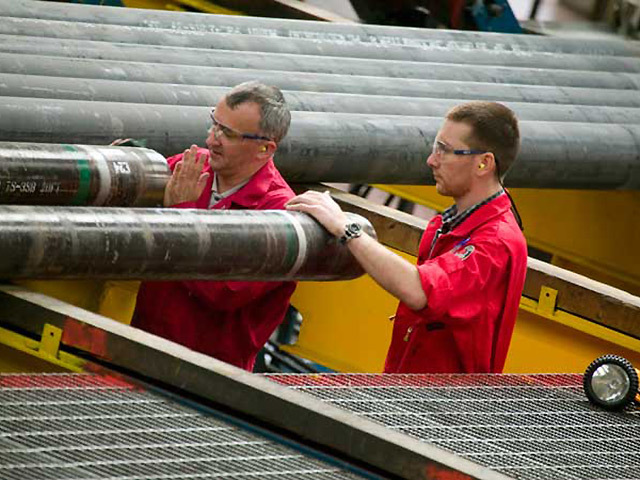
Hunting will exit 2020 with fewer than 2,000 employees, a reduction of 34% since the start of the year.
However, there is optimism for the future with market indicators prompting bosses to forecast an “improving performance” for the company in 2021.
The oil and gas industry has been forced to fight on two front this year in order to mitigate the impacts of Covid-19 and the commodity price crash.
As a result of the downturn Hunting has laid off hundreds of employees in the last few months.
The international energy services provider previously said the measures would result in cost savings of £47 million annually.
In a year end trading update issued on Thursday, Hunting said that performance during the final quarter of 2020 had led to “slightly lower revenue”, compared to the previous six months.
The drop has been put down to lower international activity, primarily in the North Sea, offsetting improvements in the US onshore market.
A delay in offshore projects due to the pandemic was cited as an additional reason.
Earnings before with interest, taxes, depreciation, and amortization (EBITDA) is also expected to take a small dip due to cautious spending by clients arising from “market uncertainties and low commodity prices”, on top of the “usual seasonal slowdown”.
However, Jim Johnson, chief executive of Hunting, said the company’s efforts to reduce working capital “have been successful”, resulting in a cash and bank position of £69m as of the end of last month.
As a result, bosses have agreed to buy up to 4.0m in ordinary shares for transferring to the employee share trust.
The firm’s capital investment for the full year is projected to be around £12m.
According to Mr Johnson, Hunting’s inventory levels “continue to decline”, and are likely to close the year below £220m.
The trading update comes at the culmination of a busy year for the London-headquartered firm which, in February, snapped up Aberdeenshire technology company Enpro Subsea for £25.6m
Last month, Hunting, alongside California-based Titan Oil Recovery, pilot tested a pioneering microbial technology that delivered a production increase of more than 25,000 barrels at the Scott field in the North Sea.
The pair claimed it was the biggest measured oil output recorded at the tested well in more than five years.
And in the last few days Hunting confirmed it had taken a minority stake in Rival Downhole Tools, with the firm’s US drilling tools subsidiary going the other way.
Jim Johnson, chief executive of Hunting, said: “As the Group approaches the year-end, market indicators including the WTI oil price, the onshore rig count and the number of active frac crews in the US, have all shown modest increases throughout the quarter which will support activity levels going into the New Year.
“With this market backdrop, coupled with a significantly lower cost base, where c.$81m in annualised savings have been achieved in the year to date, management anticipates an improving performance for the year ahead.
“The Group’s actions to restructure our global businesses during 2020 will also lead to further efficiencies being recognised as activity levels ramp up.
“With the closure of our Canada manufacturing operation and partial divestment of our Drilling Tools business, coupled with further consolidation in Singapore and USA, our business footprint is leaner and better positioned for the forecast return to growth.
“Our year end headcount will be below 2,000 employees, or a reduction of 34% since the start of 2020.
“Hunting continues to develop and launch new products and technology to clients. In the year, 39 new patents were successfully issued globally, supporting the Group’s strong intellectual property portfolio. As highlighted previously, efforts to develop non-oil and gas related sales continue throughout the Group.”
Recommended for you

